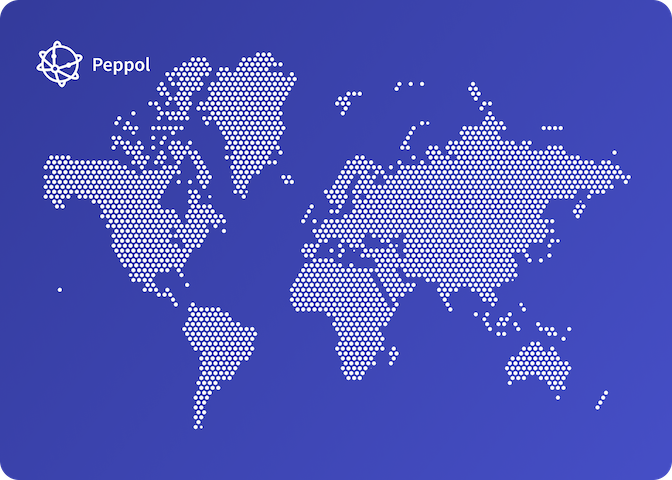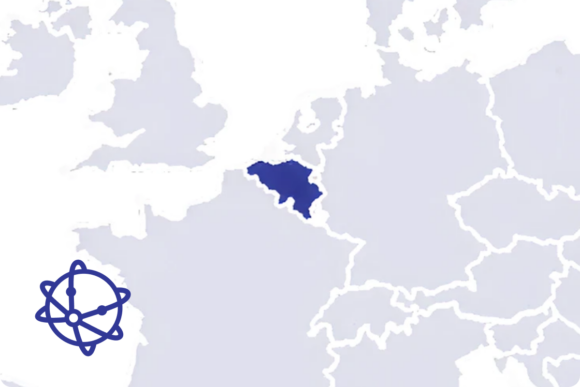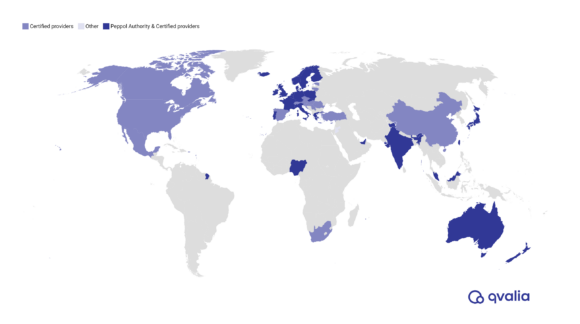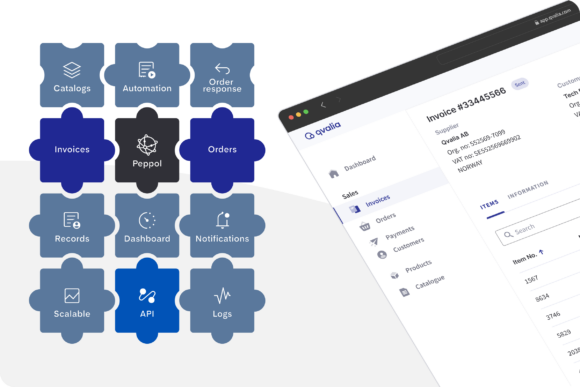
Electronic invoicing is vital for companies aiming to streamline operations and ensure regulatory compliance. EN 16931 is the European standard for electronic invoicing, the basis for Peppol, and was developed to standardize e-invoicing across Europe, making cross-border transactions more efficient and reducing administrative burdens.
Complying with EN 16931 is not just about meeting regulatory requirements; it’s about enhancing your business processes. Here’s how you can ensure compliance using Qvalia’s platform.
Understanding EN 16931
EN 16931, formally titled “Electronic invoicing – Semantic data model of the core elements of an electronic invoice,” was developed by the European Committee for Standardization (CEN). The standard aims to harmonize the content and structure of electronic invoices, ensuring they are consistent and interoperable across different systems and countries. Key aspects of EN 16931 include:
- Semantic data model: Defines an electronic invoice’s core elements and structure.
- Core elements: Specifies mandatory and optional fields in an invoice.
- Compliance: Helps businesses meet the EU Directive 2014/55/EU for public procurement.
- Interoperability: Facilitates data exchange between different e-invoicing systems.
- Implementation: Designed for software developers, businesses, and public administrations to efficiently create, exchange, and process electronic invoices.
Steps to comply with EN 16931
- Understand the requirements: Familiarize yourself with the mandatory and optional fields outlined in EN 16931. This includes buyer and supplier information, invoice lines, taxes, and totals.
- Choose the right platform: Select a platform that supports EN 16931 compliance. Qvalia’s platform is designed to meet these standards, ensuring your invoices are compliant and interoperable.
- Configure your system: Set up your invoicing system to include all mandatory fields as specified by EN 16931. Qvalia makes this easy with pre-configured templates and automated checks to ensure compliance.
- Automate processes: Use automation to handle repetitive tasks and reduce the risk of human error. Qvalia’s platform automates the entire invoicing process, from creation to delivery, ensuring that every invoice meets EN 16931 standards.
- Monitor and update: Regularly review your invoicing processes to ensure ongoing compliance. Qvalia provides continuous updates and support to help you stay compliant with any changes in the EN 16931 standard.
Electronic orders, a component of the Peppol EN framework, are among the fastest-growing areas in electronic business messaging. Explore practical tips for developers on how to get started with Peppol e-orders.
Why choose Qvalia for EN 16931 compliance?
Qvalia’s platform is designed to simplify compliance with EN 16931, offering a range of features to ensure your business meets the necessary standards:
- Automated compliance checks: Qvalia’s platform automatically verifies that your invoices meet EN 16931 requirements before they are sent.
- User-friendly interface: Our intuitive interface makes it easy to create and manage compliant invoices.
- Seamless integration: Qvalia integrates with your existing ERP and accounting systems, ensuring a smooth transition to compliant e-invoicing. Discover our invoicing APIs.
- Continuous support: We provide ongoing support and updates to ensure your invoicing processes remain compliant as standards evolve.
Complying with EN 16931 is essential for European businesses, especially those involved in public procurement. By leveraging Qvalia’s platform and access point capabilities, you can ensure your invoices meet the required standards, streamline invoicing processes, and unlock valuable efficiencies.
Ready to ensure compliance with EN 16931? To learn more about our platform and how we can help your business stay ahead of the curve, contact Qvalia today


